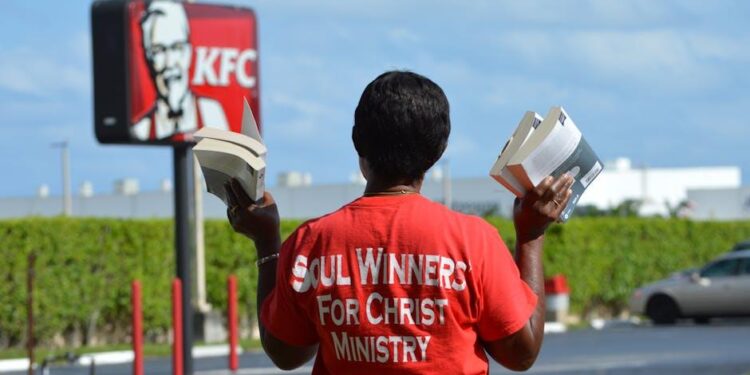Table of Contents
I used to think Eminem pushed him out of rap.
Then a venture capitalist taught me to see the truth: a masterclass in artistic portfolio management.
In late 2018, I wrote what I considered to be a definitive, if not slightly smug, op-Ed. The title was something punchy like “How Eminem Pushed MGK Out of Rap,” and it got the kind of traction that makes an editor happy.
The narrative was clean, dramatic, and easy to digest.
It followed the public feud between Machine Gun Kelly and his one-time idol, Eminem, to its seemingly logical conclusion.1
A disrespectful 2012 tweet about Eminem’s daughter, a jab on a Tech N9NE track, and then the devastating one-two punch from a rap deity: “Not Alike” followed by the career-incinerating “Killshot”.1
My piece argued that MGK, having been lyrically obliterated and effectively excommunicated from the hip-hop kingdom, had no choice but to flee.
It was a story of hubris and consequence, and for a time, I believed it was the truth.
Then the data started to betray the narrative.
In 2020, MGK released Tickets to My Downfall, a full-throated pop-punk album that debuted at No. 1 on the Billboard 200.2
It was the first rock album to hit that mark in over a year and it gave MGK his biggest commercial success to date.3
This wasn’t the data of a retreat; it was the data of a strategic conquest.
My neat, popular analysis began to feel lazy, a story I wanted to be true rather than the one the evidence was telling.
The professional unease lingered until a conversation over coffee with a friend who works in venture capital.
She was describing how she advises struggling companies.
“You don’t just abandon the company,” she explained.
“You audit the assets, identify underperforming divisions, and reallocate capital to emerging markets where the growth potential is higher.”
A light went on.
For two years, I had been analyzing Machine Gun Kelly as a character in a drama.
I should have been analyzing him as the CEO of his own multi-million dollar brand.
The Eminem feud wasn’t the plot; it was a market signal.
The genre change wasn’t a surrender; it was a pivot.
This is the story of deconstructing that initial, flawed analysis to reveal a more profound truth about artistic survival and success in the modern music industry.
It’s not a story about a rap battle; it’s a story about portfolio management.
Part 1: Auditing the Core Asset – The State of MGK’s Hip-Hop Career (Pre-2020)
To understand why a portfolio manager reallocates, one must first conduct a thorough audit of the existing assets.
Before his pop-punk reinvention, Machine Gun Kelly’s rap career was a solid, established asset with a loyal consumer base.
However, a closer look at the data reveals it was also an asset showing clear signs of hitting a commercial and critical ceiling, making it a prime candidate for diversification.
His initial public offering was strong.
After building a following with mixtapes, the Cleveland rapper signed with Diddy’s Bad Boy Records, a major vote of confidence.1
His 2012 debut album,
Lace Up, charted at a respectable No. 4 on the Billboard 200, confirming his commercial viability from the outset.5
From these early days, he cultivated a “rockstar” persona, blending rapid-fire rap with rebellious antics, indicating that rock aesthetics were always part of his brand’s D.A.1
His mid-career performance showed stability but not the exponential growth that defines superstardom.
Both General Admission (2015) and Bloom (2017) were consistent performers, charting at No. 4 and No. 8 respectively and both eventually achieving Gold certification for 500,000 in sales.5
This data points to a healthy, sustainable career, but one that had found its level.
The most crucial data point in this audit is his 2019 album, Hotel Diablo.
Released in the aftermath of the Eminem feud, it was arguably his most mature and critically well-regarded rap project, a dark, introspective blend of hip-hop and rap-rock.8
Yet despite its artistic strengths, its first-week sales were a mere 39,000 units, a significant drop from
Bloom‘s 57,000 two years prior.10
MGK himself acknowledged this “lukewarm response” in an interview, stating he felt the project “wasn’t welcomed” by the industry or the audience, a direct consequence of the “infamous beef”.1
This is where the portfolio manager’s perspective becomes crucial.
The popular narrative frames the feud as the disease that killed his rap career.
A more nuanced reading of the data suggests the feud was a symptom that exposed a pre-existing condition: the market for MGK’s specific brand of hip-hop was either saturated or had a defined ceiling.
The feud didn’t cause the decline; it dramatically exposed his commercial vulnerability and the diminishing returns of continuing to invest solely in that genre.
It was a stress test that the asset failed.
Crucially, MGK had already been planting the seeds for diversification.
His history includes being in a punk band as a teen and citing rock influences from the start.12
His discography is peppered with rock-leaning tracks, from “Save Me” with members of Avenged Sevenfold on his debut to his 2016 pop-rock hit “Bad Things” with Camila Cabello, which became his first Top 10 single.12
The most critical piece of evidence, however, was the closing track of Hotel Diablo: “I Think I’m OKAY.” A full-blown pop-punk anthem featuring YUNGBLUD and, significantly, Travis Barker, the song was a runaway success.
It went platinum and became a top 10 hit on the Billboard Hot Rock Songs chart.2
A smart portfolio manager doesn’t dive headfirst into a new market; they run a pilot program.
Placing “I Think I’m OKAY” on a rap album was a low-risk, high-reward strategic move.
The song’s massive commercial and streaming success served as definitive “proof of concept.” It provided hard data showing that a significant market existed for “MGK the rock star,” and that the potential return on investment in this new asset class was far greater than his current hip-hop ventures.
It wasn’t a creative whim; it was successful market research.
Part 2: Identifying Market Volatility – Recasting the Eminem Feud
The “Portfolio Manager” framework allows us to re-interpret the Eminem feud not as a personal humiliation, but as a crucial market intelligence event.
The objective was no longer about “winning” or “losing” a rap battle; it was about acquiring invaluable data on market risk and brand vulnerability.
The prevailing narrative, of course, is one of total defeat.
Eminem’s “Killshot” was widely seen as a career-ending blow from which MGK could not recover within the hip-hop community.1
This perception is still perpetuated by fans and some critics who believe the feud forced him to “seek refuge in another genre”.1
But a portfolio manager doesn’t see defeat; they see risk exposure.
The feud starkly revealed the inherent risk of operating in a genre policed by powerful, established gatekeepers.
It proved that his brand’s credibility within the hip-hop space was highly vulnerable to external attack.
The underwhelming reception of Hotel Diablo showed that the path forward in rap would be an uphill battle against a potent negative narrative.
The “customer acquisition cost” to win back the core hip-hop audience would be enormous, with a low probability of a positive return.
Therefore, the feud provided a clear, albeit painful, piece of market data: his “stock” in the pure hip-hop market had plummeted.
A savvy manager does not continue to pour capital into a depreciating asset when other, more promising opportunities are present.
This reframes the entire sequence of events.
A “retreat” implies an emotional, fear-based reaction.
A “strategic re-evaluation” is a logical, data-driven business decision.
The feud did not force him to abandon rap.
He could have continued making music for his loyal, if static, fanbase.
Instead, the feud provided the undeniable catalyst and justification for a pivot he was already contemplating, a pivot for which he already had positive market data from his “I Think I’m OKAY” pilot program.
The feud’s primary role was one of timing.
It wasn’t the reason he decided to pivot; it was the market event that triggered a pre-planned portfolio reallocation.
Part 3: Scanning for Emerging Markets – The 2020s Pop-Punk Revival
A great portfolio manager not only knows when to divest from a volatile asset but also which emerging market to invest in.
MGK’s pivot was perfectly timed to coincide with, and ultimately lead, a burgeoning cultural and musical movement that was ripe for takeover.
By 2020, a confluence of factors had created the perfect market conditions for a pop-punk revival.
First, the 20-year nostalgia cycle was in full effect.
Young adults who grew up listening to early 2000s bands like Blink-182, Sum 41, and Green Day were now the primary drivers of pop culture, creating a powerful nostalgic pull for the sounds of their adolescence.4
Second, the COVID-19 pandemic created a “perfect storm” for the genre’s return.16
A captive global audience, grappling with anxiety, isolation, and boredom, sought refuge in the familiar, angsty, high-energy comfort music of their youth.16
Finally, the rise of TikTok and its associated “E-boy/E-girl” aesthetic, which heavily referenced 2000s emo and pop-punk fashion, went viral.
This created a ready-made visual and cultural ecosystem for the music to thrive in, bringing the sound to a new generation.16
The mainstream music landscape had a clear opening.
For nearly a decade, guitar-driven rock had been largely absent from the top of the charts, creating a significant, unmet demand for the exact sound MGK was about to provide.17
Other artists were already tapping into this revival, including YUNGBLUD, WILLOW, and most notably Olivia Rodrigo, whose hit “good 4 u” shared the same sonic D.A.19
This proved it was a broad trend, not an isolated phenomenon.
MGK was not just an outlier; he was positioned to become its figurehead.
This is where his unique market position became his greatest advantage.
Newer pop-punk bands were generating buzz but lacked mainstream reach.
MGK, however, possessed pre-existing fame, a large social media following, and the backing of a major label, Interscope Records.21
He didn’t have to build a brand from scratch.
He could leverage his existing brand equity and inject it directly into a high-growth, emerging market.
This is a classic strategy for market capture, and it explains why
Tickets to My Downfall was able to debut at No. 1 while other revival artists were still building their audience.
He merged the power of an established brand with the velocity of a rising trend.
He didn’t just join the revival; he became its commercial apex predator.
Part 4: Executing the Reallocation – The Art of the Pivot
A brilliant strategy is worthless without flawless execution.
The astounding success of Machine Gun Kelly’s pivot lies in a series of deliberate, well-executed decisions that maximized the potential of his new venture and transformed his entire brand.
The most critical strategic move was securing Travis Barker as a full partner.
This wasn’t just a feature; it was a co-sign from the genre’s Mount Rushmore.
Partnering with the iconic drummer of pop-punk royalty Blink-182 immediately conferred legitimacy and authenticity upon the project, de-risking the entire venture for genre purists who might have otherwise dismissed it.22
Barker was not a hired gun; he was the sonic architect, serving as producer and co-writer, ensuring the sound was a genuine, high-quality homage, not a caricature.2
The initial studio session for “Bloody Valentine” was reportedly so creatively potent that it convinced MGK to ask Barker to set aside two months to craft an entire album, highlighting the powerful synergy of the partnership.2
With the musical foundation secured, the pivot was accompanied by a total overhaul of his artistic brand.
A new market requires a new product, and the transformation was comprehensive.
| Feature | Hip-Hop Era (e.g., Hotel Diablo) | Pop-Punk Era (e.g., Tickets to My Downfall) |
| Dominant Lyrical Themes | Street credibility, defiance, braggadocio, dark introspection 9 | Anxiety, heartbreak, mental health, adolescent nostalgia, romantic malaise 24 |
| Core Persona | “Rap Devil,” defiant underdog, Cleveland loyalist 25 | “Emo Girl’s” boyfriend, vulnerable romantic, mainstream rockstar 26 |
| Visual Aesthetic | Urban streetwear, rap-centric fashion 4 | Dyed hair, painted nails, pop-punk/e-boy fashion 28 |
| Target Audience | Core hip-hop fans, Midwest loyalists 29 | Gen Z TikTok users, nostalgic millennials, alternative rock fans 27 |
This meticulous brand management is why it is more accurate to view the move not as a genre “switch,” but as a genre “addition.” MGK has consistently and publicly rejected the term “switch,” stating in one interview, “I never ‘departed’ from rap,” but rather “added on to my catalogue”.12
This is not just PR spin; it aligns perfectly with the portfolio management thesis.
A smart manager doesn’t liquidate a foundational asset entirely; they diversify around it.
His stated intention to make another rap album, to “step into where I left [off with]
Hotel Diablo and expand on my storytelling as a rapper,” confirms this long-term strategy.30
He is building a diversified portfolio of artistic assets, allowing him to operate and generate revenue from multiple markets simultaneously.
His subsequent 2025 foray into Americana with the album
Lost Americana is further proof of this ongoing diversification strategy.31
Part 5: Auditing the Returns – A Commercial Juggernaut
The numbers do not lie.
When auditing the returns on this strategic reallocation of brand capital, the data is unequivocal: the pivot to pop-punk was the single most lucrative and career-elevating decision Machine Gun Kelly ever made.
The quantitative evidence is staggering.
A direct comparison between the performance of his last rap album and his first two pop-punk albums paints a clear picture of monumental growth.
| Album Title | Genre | Release Year | First-Week Units (US) | Billboard 200 Peak | Spotify Streams (Album Total) |
| Hotel Diablo | Hip-Hop/Rap Rock | 2019 | ~39,000 10 | #5 5 | 1.5 Billion 32 |
| Tickets to My Downfall | Pop-Punk | 2020 | 126,000 3 | #1 3 | 2.8 Billion 32 |
| Mainstream Sellout | Pop-Punk | 2022 | 93,000 33 | #1 33 | 1.2 Billion 32 |
The pivot resulted in a more than threefold increase in first-week performance from Hotel Diablo to Tickets to My Downfall.3
It delivered him his first two No. 1 albums, a feat he never achieved in a decade as a rapper.3
The streaming data further solidifies the massive audience expansion, with
Tickets to My Downfall accumulating over a billion more streams than its predecessor and its lead singles like “my ex’s best friend” and “bloody valentine” becoming his most-streamed tracks ever.32
The qualitative returns were just as significant.
While the move was polarizing, drawing criticism from genre purists who found the music derivative and uninspired 25, it earned him a new, higher tier of industry validation.
Tickets to My Downfall won Top Rock Album at the Billboard Music Awards, and Mainstream Sellout secured his first-ever Grammy nomination, for Best Rock Album.2
This was a level of critical prestige that had eluded him entirely in the hip-hop world.
This success forces a re-evaluation of the “sellout” accusation.
The term itself is a pejorative rooted in an old-world view of artistic purity and genre loyalty.
MGK’s decision to title his second rock album Mainstream Sellout was a brilliant, self-aware move to co-opt and neutralize this very criticism.27
In today’s fragmented, algorithm-driven music economy, genre fluidity is not a sign of selling out; it is a sign of commercial intelligence.
The modern artist’s brand is the core asset, and genres are simply different markets in which to invest that brand.
This trend is visible across the industry with artists like Post Malone (hip-hop to country) and André 3000 (hip-hop to experimental jazz).37
The goal is no longer to be the undisputed champion of a single genre but to be a successful, diversified brand with multiple revenue streams.
Conclusion: The New Blueprint for a Genre-Fluid World
Revisiting my op-ed from 2018 feels like looking at a faded photograph of a world that no longer exists.
The simplistic “Eminem vs. MGK” narrative, while dramatic, is ultimately a red herring.
The real story, uncovered through the “Portfolio Manager” lens, is a far more complex and impressive tale of strategy, foresight, and masterful execution.
Machine Gun Kelly’s genre pivot was not a fearful retreat born from a public defeat.
It was a calculated, data-driven, and brilliantly executed business strategy.
He correctly audited his primary asset (his hip-hop career), recognized its market volatility following the feud, identified a high-growth emerging market (the pop-punk revival), and reallocated his brand’s capital to achieve unprecedented commercial and critical returns.
His journey offers a potential blueprint for the 21st-century artist.
In an era where genre lines are increasingly meaningless to listeners and success is driven by brand strength, the most resilient artists may not be the genre purists, but the savvy portfolio managers.
They adapt, they diversify, and they deploy their personal brand across a multitude of sonic landscapes.
The feud will be remembered as a dramatic footnote; the pivot will be his legacy—a masterclass in how to not just survive, but conquer, in the new music economy.
Works cited
- How Eminem Turned MGK Into A Pop Singer | by How To Rap …, accessed August 12, 2025, https://medium.com/@HowToRap/how-eminem-turned-mgk-into-a-pop-singer-c82e965cf2bf
- Tickets to My Downfall – Wikipedia, accessed August 12, 2025, https://en.wikipedia.org/wiki/Tickets_to_My_Downfall
- MGK x Joji No. 1 and 3 Billboard 200 | Hypebeast, accessed August 12, 2025, https://hypebeast.com/2020/10/mgk-ticket-to-my-downfall-joji-nectar-billboard-200-news
- Machine Gun Kelly wants to ‘bring back pop punk’ – NO FUN, accessed August 12, 2025, https://nofun.tips/2021/05/02/machine-gun-kelly-pop-punk-revival/
- Machine Gun Kelly – Music Charts Archive |, accessed August 12, 2025, http://musicchartsarchive.com/artists/machine-gun-kelly
- Originally why did MGK start making pop punk and alternative music – Reddit, accessed August 12, 2025, https://www.reddit.com/r/MachineGunKelly/comments/1gg1zop/originally_why_did_mgk_start_making_pop_punk_and/
- MGK Best Selling Album Revealed: Tickets to My Downfall Stats – Accio, accessed August 12, 2025, https://www.accio.com/business/mgk_best_selling_album
- www.google.com, accessed August 12, 2025, https://www.google.com/search?q=Machine+Gun+Kelly+Hotel+Diablo+genre
- Machine Gun Kelly: Hotel Diablo – Review – Vinyl Chapters, accessed August 12, 2025, https://www.vinylchapters.com/machine-gun-kelly-hotel-diablo-review/
- how do you guys think his upcoming album will sell amd be recieved by the rap community now? : r/MachineGunKelly – Reddit, accessed August 12, 2025, https://www.reddit.com/r/MachineGunKelly/comments/14b4rh5/how_do_you_guys_think_his_upcoming_album_will/
- MGK’s crew after he blamed his low album sales on the beef with Eminem – Reddit, accessed August 12, 2025, https://www.reddit.com/r/Eminem/comments/k4c645/mgks_crew_after_he_blamed_his_low_album_sales_on/
- Why Machine Gun Kelly Doesn’t Think He ‘Switched’ Genres – Loudwire, accessed August 12, 2025, https://loudwire.com/why-machine-gun-kelly-doesnt-think-switched-genres/
- mgk Songs, Albums, Reviews, Bio & More – AllMusic, accessed August 12, 2025, https://www.allmusic.com/artist/mgk-mn0002125399
- Machine Gun Kelly’s Rap Exit Might Have Everything to Do With …, accessed August 12, 2025, https://collider.com/eminem-mgk-rap-feud-pop-punk-switch/
- Can we agree that mgk switching genres just shows that he is more versatile than many different artists? : r/MachineGunKelly – Reddit, accessed August 12, 2025, https://www.reddit.com/r/MachineGunKelly/comments/uijrzw/can_we_agree_that_mgk_switching_genres_just_shows/
- Sugar, We’re Goin’ Inside: COVID-19 and the Pop Punk Revival …, accessed August 12, 2025, https://firebirdmagazine.com/birds-eye-view/sugar-were-goin-inside
- The Revival of Pop Punk – The Regional, accessed August 12, 2025, https://theregional.org/17264/showcase/the-revival-of-pop-punk/
- Let’s talk about the early 2020s Pop Punk Revival : r/decadeology – Reddit, accessed August 12, 2025, https://www.reddit.com/r/decadeology/comments/1fei0vd/lets_talk_about_the_early_2020s_pop_punk_revival/
- Pop-punk – Wikipedia, accessed August 12, 2025, https://en.wikipedia.org/wiki/Pop-punk
- TIDAL Primer: 2020s Pop-Punk Revival, accessed August 12, 2025, https://tidal.com/magazine/article/pop-punk-revival/1-79955
- Is there a reason why mgk is the only “newer” pop punk act that’s gained mass mainstream attention? : r/poppunkers – Reddit, accessed August 12, 2025, https://www.reddit.com/r/poppunkers/comments/z644ut/is_there_a_reason_why_mgk_is_the_only_newer_pop/
- An Argument that Machine Gun Kelly Was Responsible for the Resurgence of Pop Punk (Part 2) : r/poppunkers – Reddit, accessed August 12, 2025, https://www.reddit.com/r/poppunkers/comments/18xrp1k/an_argument_that_machine_gun_kelly_was/
- 5 Songs You Didn’t Know Travis Barker Wrote for Machine Gun Kelly – American Songwriter, accessed August 12, 2025, https://americansongwriter.com/5-songs-you-didnt-know-travis-barker-wrote-for-machine-gun-kelly/
- Pop Punk’s Savior: How Machine Gun Kelly Is Bringing An Entire …, accessed August 12, 2025, https://keithdevlin.medium.com/pop-punks-savior-how-machine-gun-kelly-is-bringing-an-entire-genre-back-to-the-forefront-380489dde44e
- MGK’s “Mainstream Sellout” Album Review – The Forest Scout, accessed August 12, 2025, https://theforestscout.com/36768/in-culture/in-music/mgks-mainstream-sellout-album-review/
- Key Changes: Machine Gun Kelly and Mainstream Sellout – the Davenport Public Library Blogs, accessed August 12, 2025, https://blogs.davenportlibrary.com/reference/key-changes-machine-gun-kelly-and-mainstream-sellout/
- Machine Gun Kelly’s Mainstream Sellout: Album and Tour Experience, accessed August 12, 2025, https://halftonemag.com/reviews/machine-gun-kellys-mainstream-sellout-album-and-tour-experience/
- Albums You May Have Missed: Machine Gun Kelly Transitions to Pop-Punk with “Tickets To My Downfall” – The La Salle Falconer, accessed August 12, 2025, https://lasallefalconer.com/2021/02/machine-gun-kelly-partners-with-blink-i82-member-travis-barker-in-his-new-album-tickets-to-my-downfall/
- Demographic of MGK Fans : r/MachineGunKelly – Reddit, accessed August 12, 2025, https://www.reddit.com/r/MachineGunKelly/comments/tk6ct8/demographic_of_mgk_fans/
- Machine Gun Kelly Is Quitting Rock Music – Revolver Magazine, accessed August 12, 2025, https://www.revolvermag.com/music/machine-gun-kelly-quitting-rock-music/
- ‘Lost Americana’ Marks A New Chapter in MGK’s Genre-Bending Career – Z100 New York, accessed August 12, 2025, https://z100.iheart.com/content/2025-08-08-lost-americana-marks-a-new-chapter-in-mgks-genre-bending-career/
- mgk – Spotify Top Albums – Kworb.net, accessed August 12, 2025, https://kworb.net/spotify/artist/6TIYQ3jFPwQSRmorSezPxX_albums.html
- Mainstream Sellout – Wikipedia, accessed August 12, 2025, https://en.wikipedia.org/wiki/Mainstream_Sellout
- mgk – Spotify Top Songs – Kworb.net, accessed August 12, 2025, https://kworb.net/spotify/artist/6TIYQ3jFPwQSRmorSezPxX_songs.html
- The Pop-Punk Revival? – Buzzsaw Magazine, accessed August 12, 2025, https://buzzsawmag.org/2022/04/29/the-pop-punk-revival/
- What does the pop punk community think of Machine Gun Kelly? : r/poppunkers – Reddit, accessed August 12, 2025, https://www.reddit.com/r/poppunkers/comments/zky4u9/what_does_the_pop_punk_community_think_of_machine/
- 10 Artists Who Totally Changed Genres (And It Worked Out Perfectly For Number 1), accessed August 12, 2025, https://screenrant.com/music-artists-who-changed-genres/






